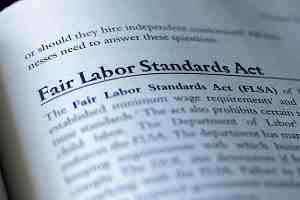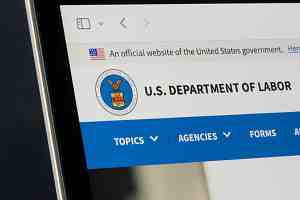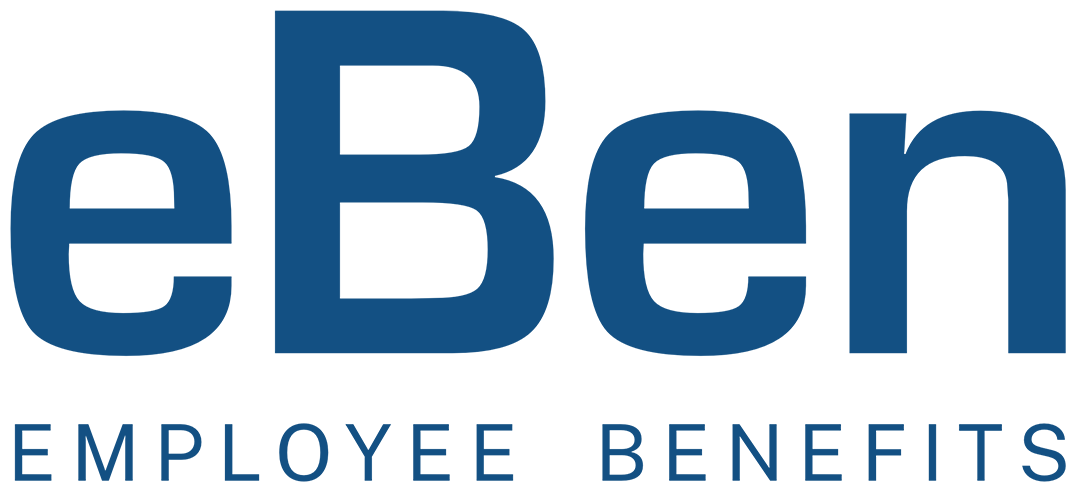The U.S. Department of Labor (DOL) recently announced a new overtime rule that will increase the salary threshold for overtime pay eligibility. Under the new rule, any exempt employee who earns less than the minimum salary for exempt workers must be reclassified as nonexempt or given a pay bump to satisfy the difference. Let’s discuss the new overtime rule and how it could impact your payroll beginning on July 1, 2024.
How Overtime Thresholds Work
In the U.S., eligible employees are ensured fair pay through overtime pay protections included in the Fair Labor Standards Act (FLSA). These protections ensure that nonexempt employees who work more than 40 hours per week are paid 1.5 times their regular pay for any additional hours worked.
Most hourly employees are eligible for overtime pay. However, workers paid on salary may be exempt from overtime pay if they earn above a certain salary threshold. Job duties often exempt from overtime pay protection include roles considered executive, administrative, or professional (EAP).
The New 2024 Overtime Rule
 The FLSA is a federal law that provides protections in several areas of employment, such as minimum wage, child labor laws, recordkeeping requirements, and overtime pay eligibility. The DOL enforces the FLSA and is responsible for establishing the salary threshold.
The FLSA is a federal law that provides protections in several areas of employment, such as minimum wage, child labor laws, recordkeeping requirements, and overtime pay eligibility. The DOL enforces the FLSA and is responsible for establishing the salary threshold.
On April 23, 2024, the new overtime rule was announced that increases the FLSA salary threshold from $35,568 annually ($684 per week) to $43,888 annually ($844 per week). This means that starting on July 1, 2024, any salaried employee earning less than $43,888 will become eligible for overtime pay.
Exempt Employee Qualification
The new overtime rule also changes which employees qualify as exempt under the FLSA. To be considered exempt from overtime pay requirements, an employee must meet all the following requirements:
- The employee must receive a salary.
- The employee must have executive, administrative, or professional job duties.
- The salary must not be less than the updated FLSA salary threshold.
There are often morale concerns when choosing to convert an exempt employee to nonexempt status. Some organizations may find it useful to retain an employee’s salary while reclassifying the worker as nonexempt. Although most nonexempt workers are hourly employees, the FLSA does not require nonexempt workers to be paid hourly.
Future Increases in Salary Thresholds
 The DOL’s new final rule will occur in two steps over the next eight months and again every 3 years thereafter. Beginning January 1, 2025, the salary threshold will increase to $58,656 annually ($1,128 per week). The threshold will increase again on July 1, 2027, followed by regular increases every 3 years.
The DOL’s new final rule will occur in two steps over the next eight months and again every 3 years thereafter. Beginning January 1, 2025, the salary threshold will increase to $58,656 annually ($1,128 per week). The threshold will increase again on July 1, 2027, followed by regular increases every 3 years.
On January 1, 2025, the annual compensation requirement for highly compensated workers will also increase. Effective July 1, 2024, a worker must earn at least $132,964 in annual compensation to qualify for the highly compensated employee exemption. On January 1, 2025, the amount will rise to $151,164.
Unlike other exempt employees who must meet EAP job duty requirements, an exempt, highly compensated employee must only satisfy one job duty.
What Actions Should Employers
Take to Prepare?
The new overtime rule is expected to benefit more than 4.3 million workers across the U.S., with the majority of impacted employees falling into the professional and business services, financial activities, social services, and healthcare categories.
How an organization should prepare for these changes will depend on the status of its existing workforce. If you have only nonexempt employees, nothing will change. Nonexempt workers will continue to earn their regular wages and any overtime pay if they work more than 40 hours in a week.
However, employers who have exempt employees will need to decide whether to reclassify these employees as nonexempt or find alternative ways to comply with the new overtime rule.
Start by reviewing exempt employee records to determine if any earn below $43,888. If they do, you can choose to:
- Increase salaries – To comply with the new FLSA salary threshold, the employee’s salary must be above $43,888.
- Limit overtime hours – Employers can choose to limit the number of overtime hours that employees can work by implementing an overtime decrease or ban in the workplace.
- Pay overtime wages – Employees who earn below $43,888 annually must be paid overtime wages for time worked beyond the regular 40 hours per week.
It’s also important for employers to communicate with newly nonexempt employees. Make employees aware that the change in status is mandatory and that you are required by law to follow the updated FLSA salary threshold rule. Talk about potential job changes, as some positions may change when employees become nonexempt.
Prepare for the New Overtime Rule with Help from eBen
With millions of exempt workers soon to be eligible for overtime pay with the implementation of the new salary threshold, employers should prepare for changes to maintain compliance. Working with an experienced benefits consultant can ensure a smooth transition. Feel free to review our resources here.


